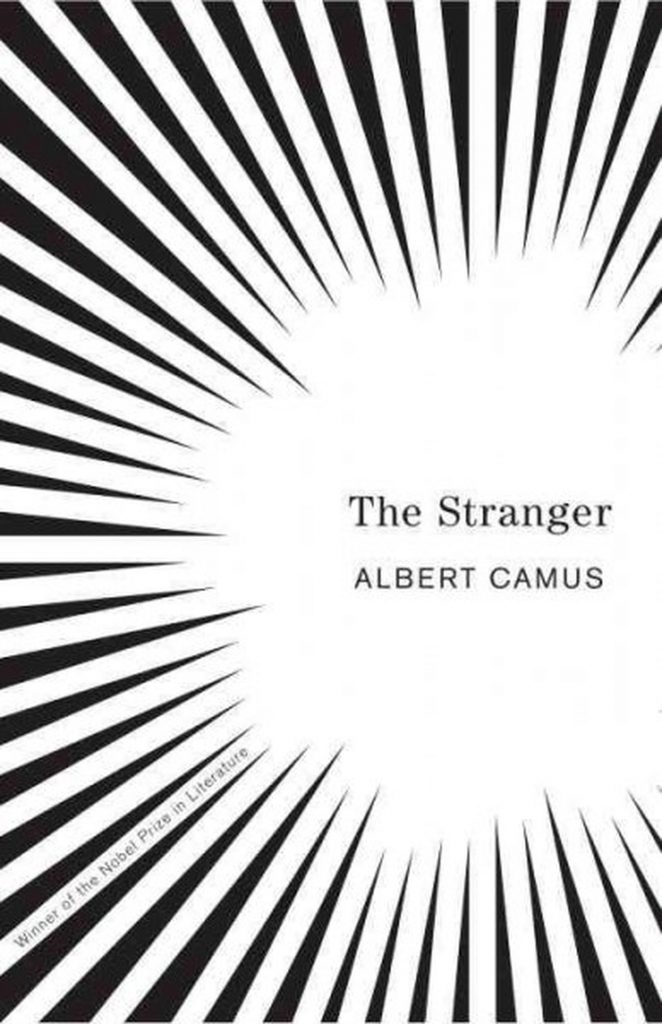 It was a warm. The air was dense with invisible droplets of water. My eyes and knees were heavy. I wanted to go home and rest my head on a soft pillow, But the descending cadence of conversation on that back patio full of exhausted party-goers insisted I stay put.
It was a warm. The air was dense with invisible droplets of water. My eyes and knees were heavy. I wanted to go home and rest my head on a soft pillow, But the descending cadence of conversation on that back patio full of exhausted party-goers insisted I stay put.
I used my feet. Around a small wooden table, all of the chairs were occupied. Conversation in that circle would grow dim, then enough silence for a punchline to mature, followed by uproarious laughter which certainly grated along the neighbor’s nerves at such an hour.
I wasn’t interested in that conversation which, through the sleepy haze, seemed like a plate of dull food disguised with too much salt. I kept a smile on my face. I was glad no one was calling my inquisitive nature to account, unsure it would work as expected at this hour, and with this temperament of mind.
I maintained a vacant conversation with Josh, a fellow guest. Our words ghosts on each other’s ears, their bodies having grown frail long before our paths converged. If one were paying attention, they might have seen words falling out of our phrases, breaking on the floor before their meaning could be appreciated.
It was human connections–one person to another–that so ironically called itself the topic of our conversation. “How can you really know where someone is at?” Josh posited.
Fumbling through his own personal alcohol swamp, a drowsy guest behind us stood up, paused and then marched off the patio through the sliding glass door and into the house. My conversation with Josh rested for only a minute.
“But why do we need them?” I wanted to know whether human connections were necessary. Josh wanted to know if they were possible. Our trail of thought came at an hour and with such mental fatigue that they couldn’t become synchronized in that moment.
“Have you read The Stranger?”, Josh asked, perhaps out of nowhere. My mind was cloudy and the party around the table near us had just thought something was particularly funny. Nevertheless, the mention of literature I haven’t read, and the possibility of a greater perspective on the world for me–if only I would read it–brought my attention back.
“By Albert Camus?”, Josh clarified.
“No. Is it fiction?” I asked out loud, though quietly wondering what use I have for stories.
“Yes, but…” Josh continued, though before I could perceive anything else he was really saying, I realized I would buy the book and read it. As Josh was speaking, I caught words like “philosophical” and “perspective”. I mashed the words “Stranger camus” into the notes on my phone.
Concerned for a friend who’d gone missing at the party some time ago, Josh ended our conversation. My resistance to drowsiness ended with it. My eyes were like rocks in salt water. I was glad that there wasn’t any alcohol in my system.
I made my way to my car, and in what seemed like one smooth motion, climbed into the driver’s seat and then fell asleep on my bed.
I awoke the next morning, again glad that I hadn’t made alcohol a part of my fun the previous night. I felt good. I let one leg fall off the bed, and then another. Then felt the pressure on the pads of my feet as I put weight on them. All of the little helper muscles in my body were waking up, eager for a good dose of caffeine. Feed the dog. Brush your teeth. Take your vitamins. Brew some coffee. That Saturday morning was getting off to an excellent start.
With a fresh cup of alertness, I sat down in a chair that belonged to my mother’s first husband who’s premature departure from his life, made my life possible. “Is human connection necessary, is it possible?” The conversation from the night before came back to mind, now with the lucidity that had died out too early before. “I’m sitting on the answer”, I thought.
It was another two taps on the screen of my iPad before the book was sitting open in front of me. “What use do I have for stories” I thought to myself as I turned the first page. And then the second, and then the third. As I can expect of ripe literature, the words were grabbing me and my own stories were answering my rhetorical questions. In the fragments of time between one phrase and the next, Meursault, the novel’s protagonist, spoke to me. Though I did not speak back, certain he was neither concerned about my opinion, nor a complete enough person to understand it.
Though I could only hear him thanks to a crackly microphone, and could only see him through the thick, filthy glass of a penitentiary in my imagination, he tried to relate what had happened. But even I thought he was lying. Or maybe just completely delusional.
Meursault’s mother had died recently. He barely even went to the funeral. He couldn’t believe anyone really loved her–or so it seemed to me. But still he made all kinds of excuses for why he put her in that nursing home, where they took away all her freedom. “She was much happier there”, he justified. And maybe he’s right. “She really needed special care…” He added. Again, maybe he’s right. But the cadence in his speech betrayed him.
I stopped, and thought of my own mother who’s passing came slowly enough for us to get used to the sadness, but not so slowly as to inspire hope of escaping death. Her’s or ours. There were many tears in those days. There were hands, arms and heads held, and goodbyes said. There were human connections coming to a graceful, albeit painful and inevitable, conclusion. I couldn’t keep reading.
I made my way from the book, and in what seemed like one smooth motion, lived productively and then fell asleep on my bed.
“Human connections are possible.” My eyes opened. In the night my thoughts had sprouted limbs. Human connections were possible, and there was proof in the pain. It wasn’t facts that made human connection possible–like knowing when precisely my mother would die–it was trust. Trust that what we experienced was real. Trust that what we shared meant something. Trust that though it’s impossible to fight the fundamental truth of change, iterations exist while they do and they can be wonderful.
“What is Meursault missing?” I wondered. He was tired at his mother’s funeral. But why hadn’t he cared? Perhaps he trusted too much. Maybe he accepted change too readily and no moment was allowed to win his appreciation. Maybe the most satisfying emotions have no basis less than a denial that change is fundamental. I needed to know.
This time, in my conversation with Meursault, he told me of his girlfriend, Marie, to whom he showed a lack of enthusiasm that might make an inquisitive person wonder about his sexual orientation. Meursault recounted a time when she asked him to marry her and to which he nonchalantly said “If you want to.” and went on to explain that he would marry anyone who asked him, because it didn’t matter.
I was starting to suspect that I was right about Meursault’s complete submission to change. He accepted it so readily, it didn’t seem that he could feel much of anything. Although he was indifferent, he insisted that he cared for her. Or at least that he cared for the way she made him feel–which may be nothing, in fact.
I could feel our time together that day growing short. He could sense that I didn’t trust him. Meursault explained the way he tried to stand up for a friend in court who’d hit his girlfriend after she cheated on him. I didn’t think that was defensible, but Meursault seemed to see it as a virtue. And maybe it was. I wondered why he did it–standing up for his friend like that.
Once again, I went along one smooth motion all the way to my bed. As I slept, I played with Meursault’s words with the fingers in my mind. I twisted the threads around until they were knotted.
As I entered the room for one final conversation with Meursault before he would be beheaded, I asked him, “what did you do?”
I expected this to be the moment when I would see what Meursault was hiding. Why he hadn’t cried when he lost his mother. Why he hadn’t cared whether Marie would marry him. Why he would stick his neck out for a friend, pun intended.
He told me, though meekly, without a hint of quivering in his voice, that he’d killed someone. A man had threatened his friend, or maybe beat him up. The microphone crackled loudly and made a hushing noise. I can’t be exactly sure. He said that he found the man on a beach and that the man had brandished a knife, though Meursault made it sound more like he was getting ready to defend himself. He fired a gun at the man once to kill him, then three times to be sure.
Though I think in an attempt to conjure sympathy, he said firing those bullets was “like knocking four quick times on the door of unhappiness.” I read in the papers later that he’d said in court that he was overwhelmed and it was hot.
I left him knowing he’d be dead soon. His head would land cleanly in a basket, making a thud of as much consequence as he ever felt.
I was disappointed that he hadn’t learned anything in our time together. That he didn’t see the significance of his mother’s death, that he hadn’t cared much about his girlfriend, or that he couldn’t appreciate what he’d done to another human being. But, I felt grateful that his burden was not mine.
I thought to myself that I finally understood what meaning for me lay at the bottom of my conversation with Josh. Human connections were possible, but for those who have no fear of change, they were only a phenomenon. I wondered if I could appreciate my own mother if every moment with her I fully accepted that she could be gone in the blink of an eye. Some part of the human connection is birthed in the clutches of resistance to ourselves and what is plainly true.
But what became clearer was that while while the connection was possible, to be human, it was also necessary.
It turned in my mind to a kind of paradox. To appreciate this person completely, we must imagine our mutual love will continue forever. But to love forever, we must be willing to admit that nothing lasts forever.
I closed the book, and sat quietly for several minutes. “Maybe I should write a story about reading this story,” wondering how I would tell Josh about my time with Meursault. But then, “Ah, but what use do I have for stories?”

Recent Discussion